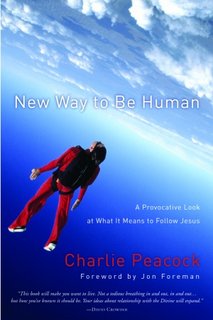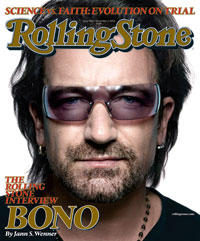REMEMBERING KYLE LAKE
 (Picured: UBC Lead Pastor Kyle Lake, UBC Community Pastor Ben Dudley, Lead Worshipper David Crowder celebrating UBC's tenth anniversary recently)
(Picured: UBC Lead Pastor Kyle Lake, UBC Community Pastor Ben Dudley, Lead Worshipper David Crowder celebrating UBC's tenth anniversary recently) University Baptist Church in Waco, Texas lost a pastor and friend today. Kyle Lake, father of three, died this morning baptizing in UBC's morning service, welcoming people into the Kingdom of Heaven. Seems appropriate to me. My greatest memory of Kyle was him teaching me how to tell others about Jesus. He couldn't have been more than nineteen and I was just a couple years younger, in the youth group of FIrst Baptist Church in Tyler, Texas where we both grew up. His enthusiasm for talking about Jesus and his knowledge of scripture inspired me. I'd never seen anyone so close to me in years so far ahead spiritually, so brave and wise. We younger kids worshiped Kyle, the good looking soccer player everyone wanted to be, standing before us not to draw attention to himself - though there was plenty to admire - but to focus our desires on Christ. He pointed us in the right direction, a life of building Heaven on earth, and then left town headed in that direction himself, eventually pastoring University Baptist Church in Waco.
He leaves behind an amazing Mother and Father who showered Kyle and his brothers and sister with love and sound teaching and made him the man he became. He leaves behind a wife willing to put up with a pastoring husband and his congregation and the demands it must have made on them both, willing to sacrifice for the purpose Kyle and she were made for. He leaves behind three small children who will no doubt remember their father as a playmate, corrector, protector and teacher and will hopefully be told the stories of his life lived well for the rest of their lives. He leaves behind a congregation of students who, if they listened and watched closely and imitated well, are closer to the image and walk of Christ for having their lives crossing paths with Kyle's. He leaves behind many friends and fellow ministers in the emergent church movement who should now do their best to love and learn and communicate and serve as well as Kyle did.
We know today that Kyle is seeing God clearly now, face to face, his view unobstructed by the haze of this life. He's missing none of us. He's lacking nothing. His days are infinite and his heart whole. His tears gone. His hope realized. His company is a crowd that will only grow with time, a multitude of men and women lead to citizenship in Heaven by his words and laughter, random stories and worshipful listening, prayers and preaching of thirty-three years spent well.
We'll miss Kyle. He'll leave a hole in many lives. So we mourn that death exists, robs, surprises and perplexes. We mourn children without a father and a wife who'll sleep alone, parents who couldn't have imagined they'd bury a child.
We believe God though. We know that His plan has always included Kyle's death and that it plays a key role, somehow, in bringing fame to Himself, bringing the image of God into greater focus and putting our lives under examination in light of our mortality. God is up to something. Always. And He is keeping His promise to Kyle tonight, the promise of an eternal home, a lasting peace, a crown to lay at the feet of Jesus, a place to worship and delve deeper into the vast knowledge and love of Jesus. So we celebrate. This is not the end of Kyle's life, merely a transition to life at it's fullest, without boundaries and body and cares and fears. Kyle is home.
And I'm reminded, losing a friend I'd lost touch with and never got to know as much I wanted to, not to waste people and minutes and skills. I'm seeing life more clearly tonight, in light of mortality, reawakened to eternal perspective. The things I fear seem smaller, the people I aim to please seem less worthy of pleasing, and the time seems short and weighty, purposed from sunup to sundown. The bedtime ritual went by more slowly this evening, in technicolor, slow motion, every sentence prayed by tiny lips reveled in, every stroke of small hands across my beard filled with contentment and comfort. I hugged and kissed my wife harder, longer, noticing how she smells and talks and feels. Staring her in the eyes, telling her more often than usual what she means to me and how much better life is with her for me, not with cliches but with new words that on any other day she'd laugh off as cheesy or strange but today they mean more to both of us. Hundreds of names have filled my head, people I need to talk to, calls I need to make, needs I need to meet and prayers that will be prayed. The first prayer is that the newness of life that this taste of death has brought many of us will last longer than the funeral flowers, that we'll live fearlessly and focussed - that we will live like Kyle seemed to years ago teaching me about Jesus and teaching me how to introduce others to Him.



















